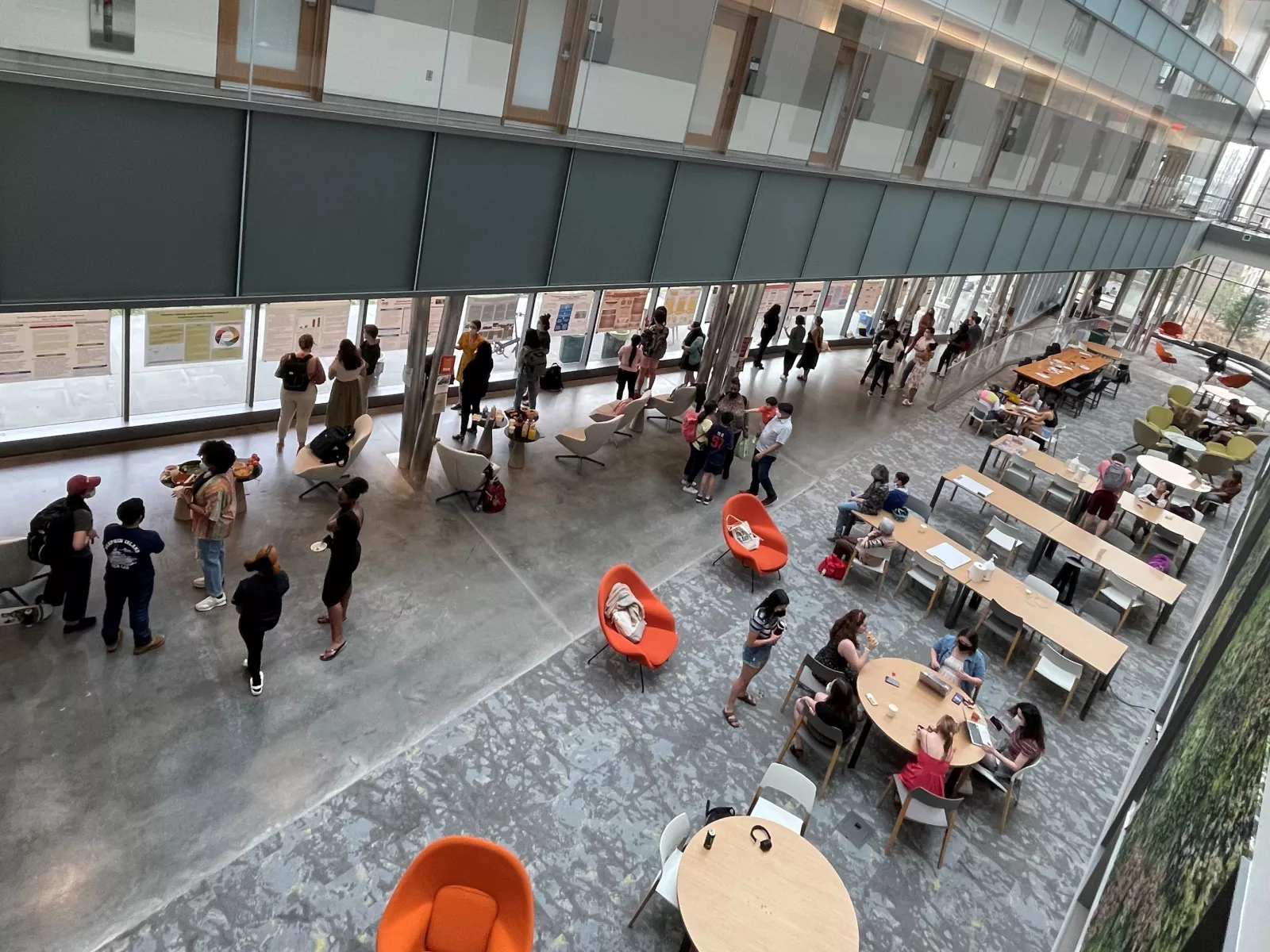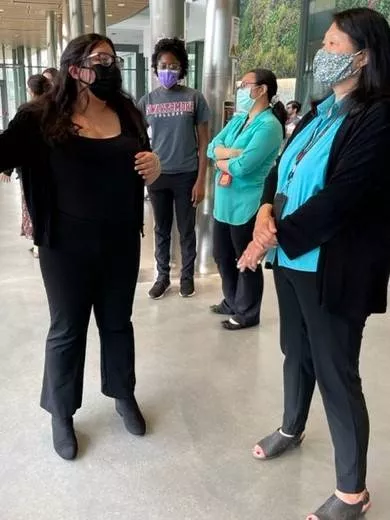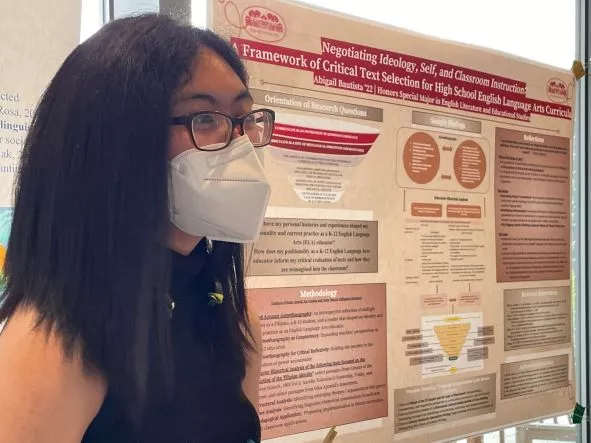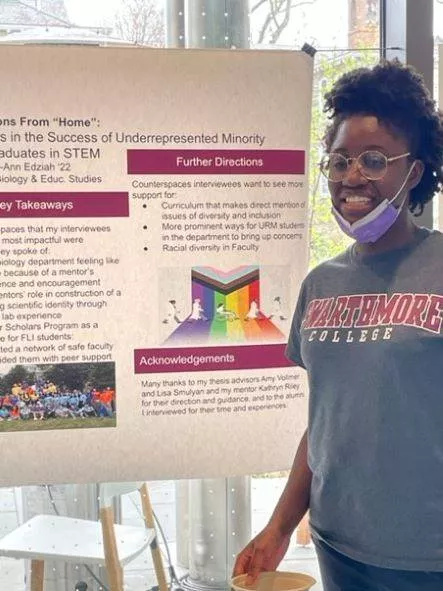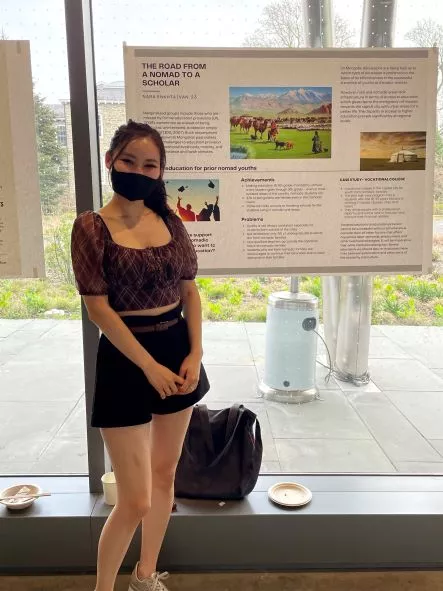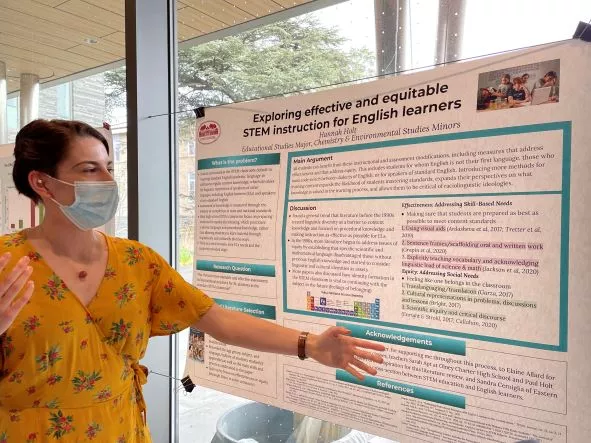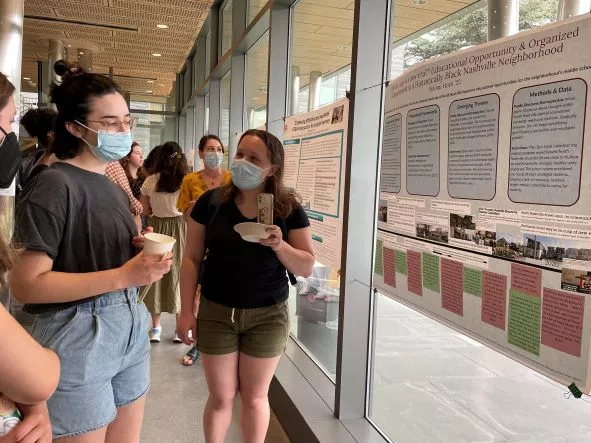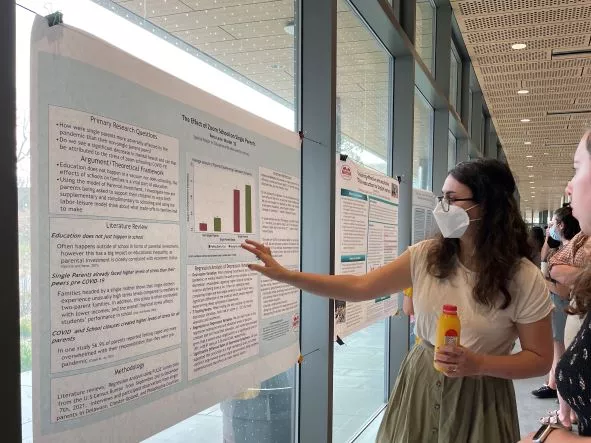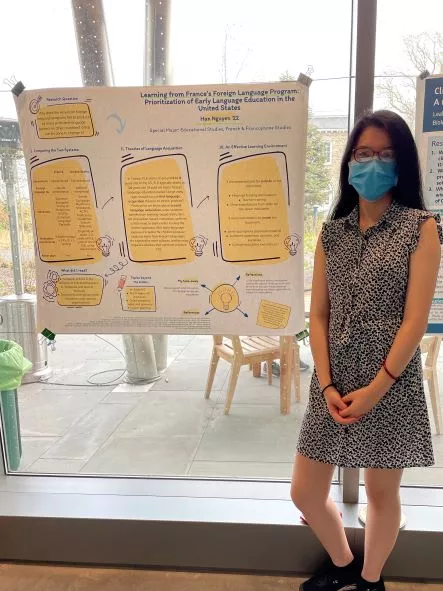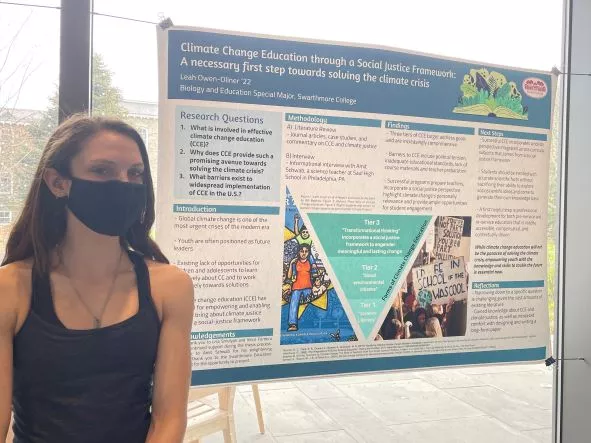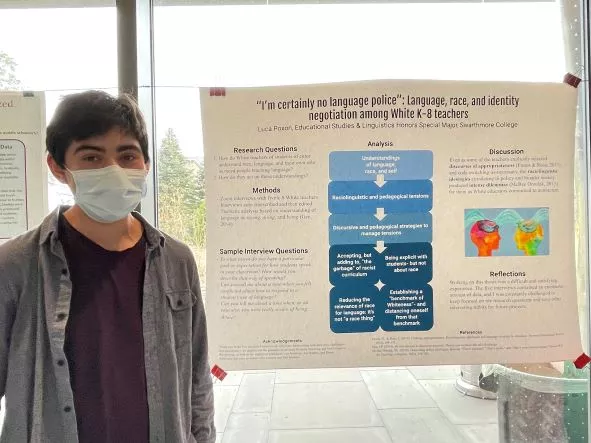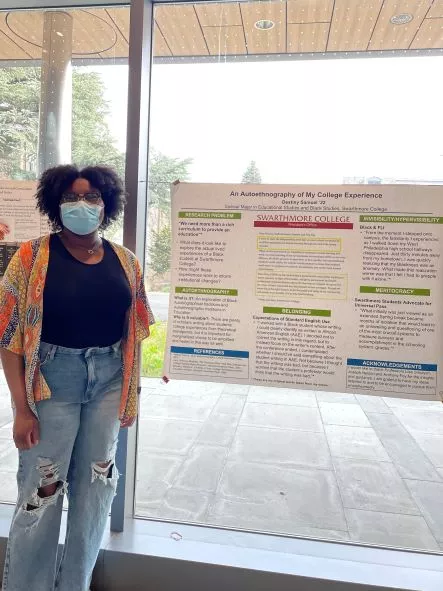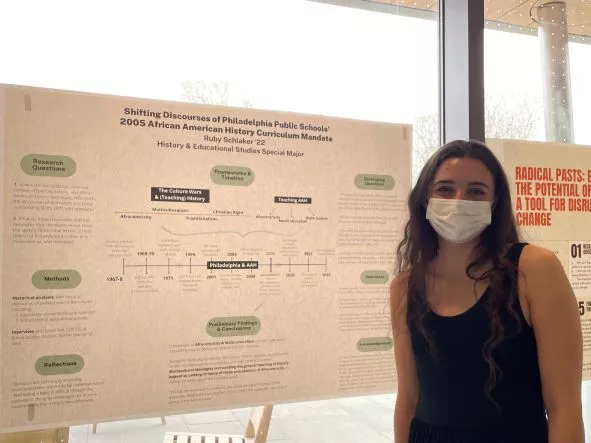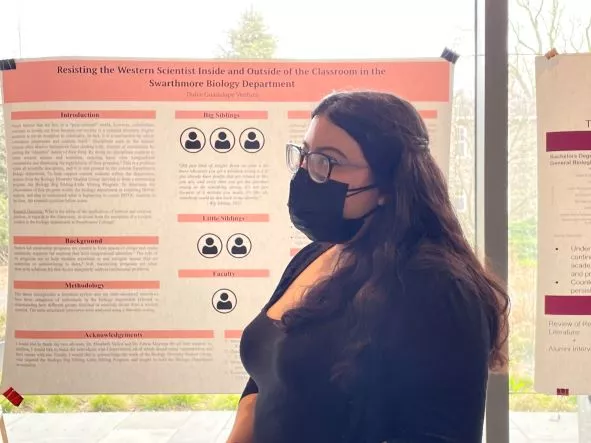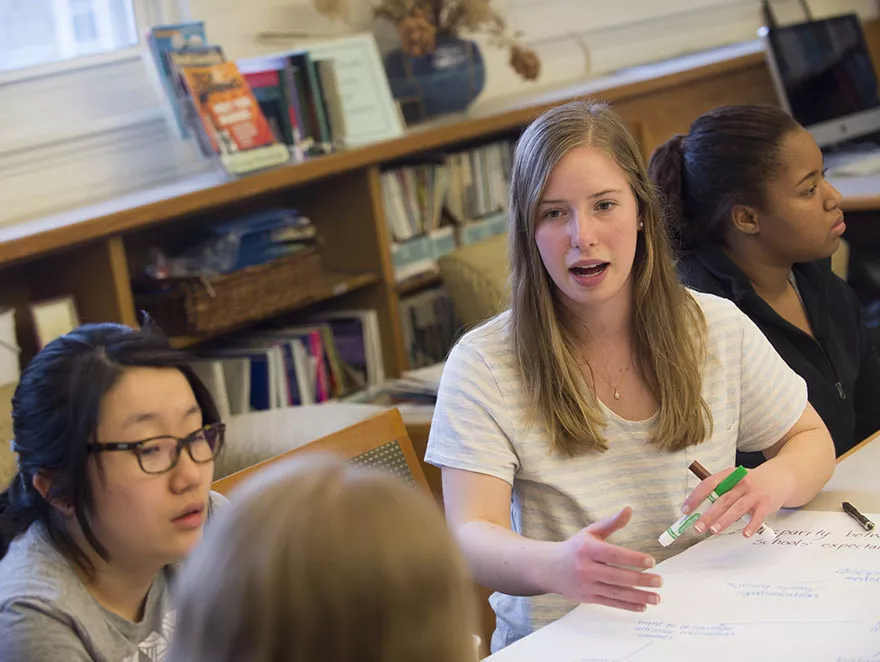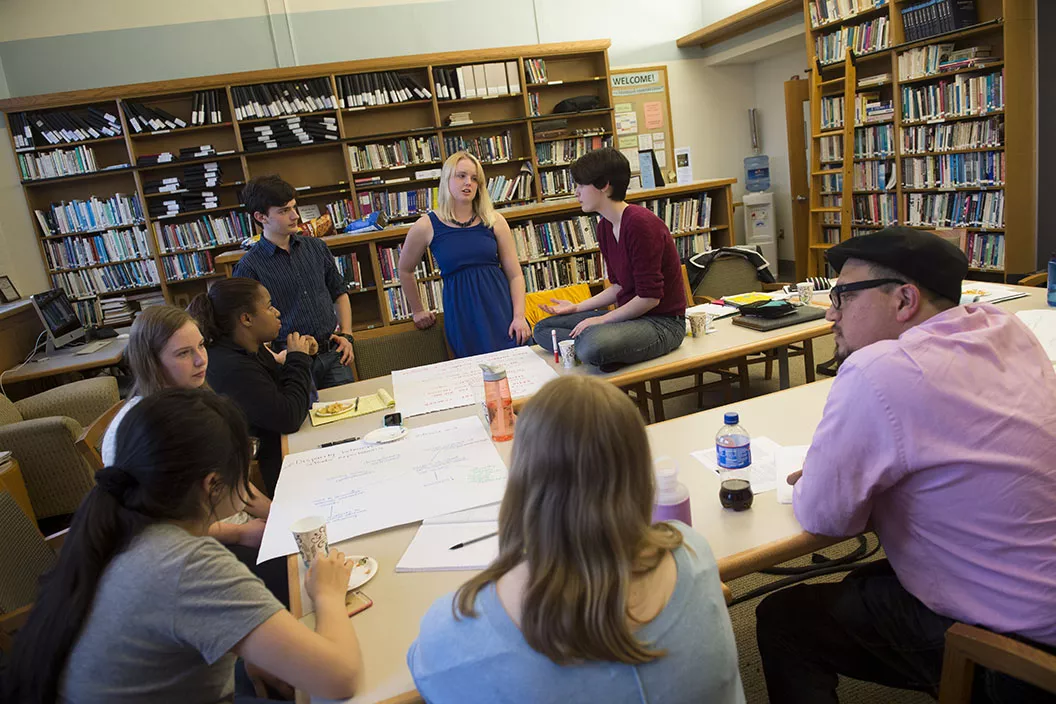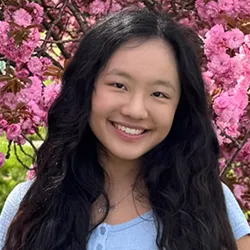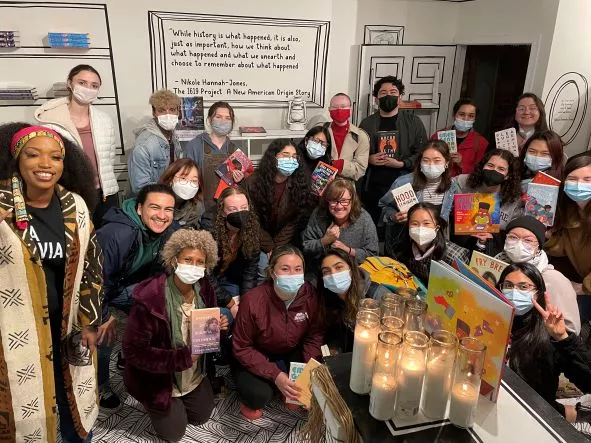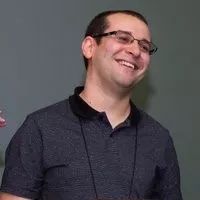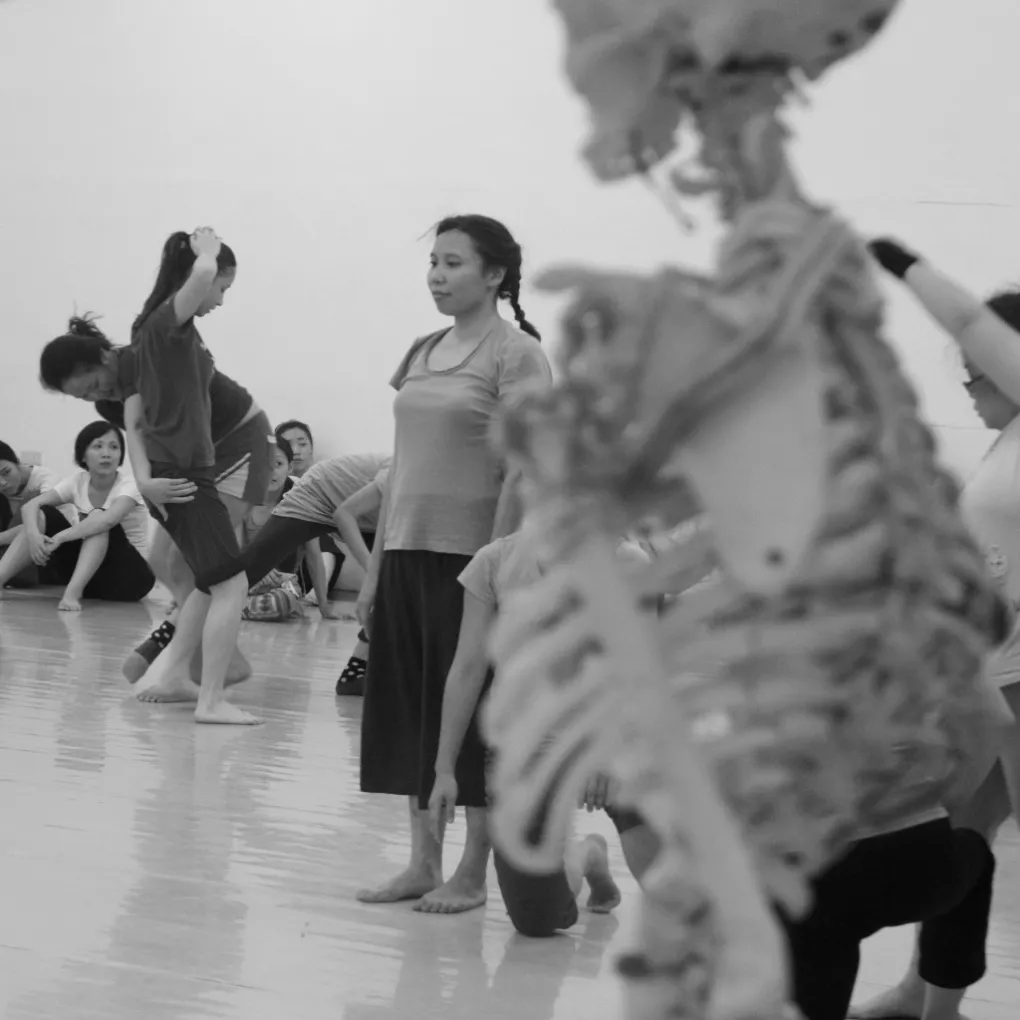Educational Studies is an interdisciplinary field that employs qualitative, quantitative, and mixed methodologies to examine and address educational research, policy, theory, pedagogy, and related practices. Students who pursue course work in Educational Studies develop richly informed perspectives on the role of education in society. They go on to become leaders in a wide range of fields: discipline-based research in higher education (e.g., anthropology, English, linguistics, psychology, sociology, math education, science education, computer science); museums and out-of-school learning, general education including teaching, school leadership and policy; community organization and development; clinical psychology, counseling, English as a second language, evaluation research, special education, social work; medicine; and law.
Developing students' ability to think critically and creatively about key concepts in the field (teaching, learning and development, social and cultural contexts of education, contemporary issues and the role of education in society) is among the Department of Educational Studies' learning goals. Courses prepare students to use education practice to inform theory and research, and to use theory and research to reflect on and modify education practice. Students hone their research skills in upper-level courses, and, during the summer, can apply for support to pursue further training through work on a professor’s project, or their own research interests. Experiences of this type provide students with a rich base from which to investigate the questions in their comprehensive experience as seniors at the College.
Our scholarship and practice
Faculty members in the department conduct engaged scholarship: research and practice that is grounded in partnerships with schools, practitioners, and communities, in suburban and urban settings that range from classrooms to community programs. Students often contribute as research assistants and collaborators. Some recent examples of faculty projects on which students have assisted include:
- identifying effective curricular support for bilingual and multilingual classrooms [Elaine Allard]
- exploring the reciprocal teaching and learning of literacies and identities in local communities [Diane Anderson]
- supporting agency in students and teachers working for racial justice [Jennifer Bradley]
- urban school and neighborhood partnerships, youth-led research and sanctuary-focused action for social change, a K-16 critical racial/ethnic studies curricular database, and sustaining an online journal of Critical Education Policy Studies (#CritEdPol) [Edwin Mayorga]
- tracking positive educational pathways for black boys [Joseph Nelson]
- examining the intersection of racism and ableism in educational policies and teacher education [Jennifer Phuong]
- promoting and assessing middle school students’ development of conceptual understanding, equity, and executive functions through collaborative work in mathematics [Ann Renninger]
- promoting teacher leadership [Lisa Smulyan]
